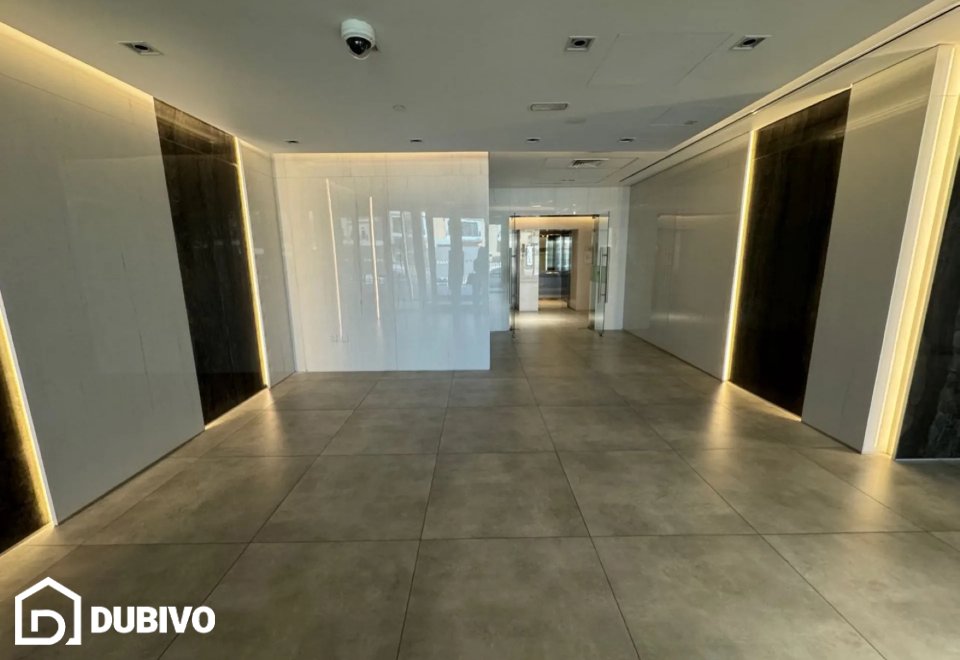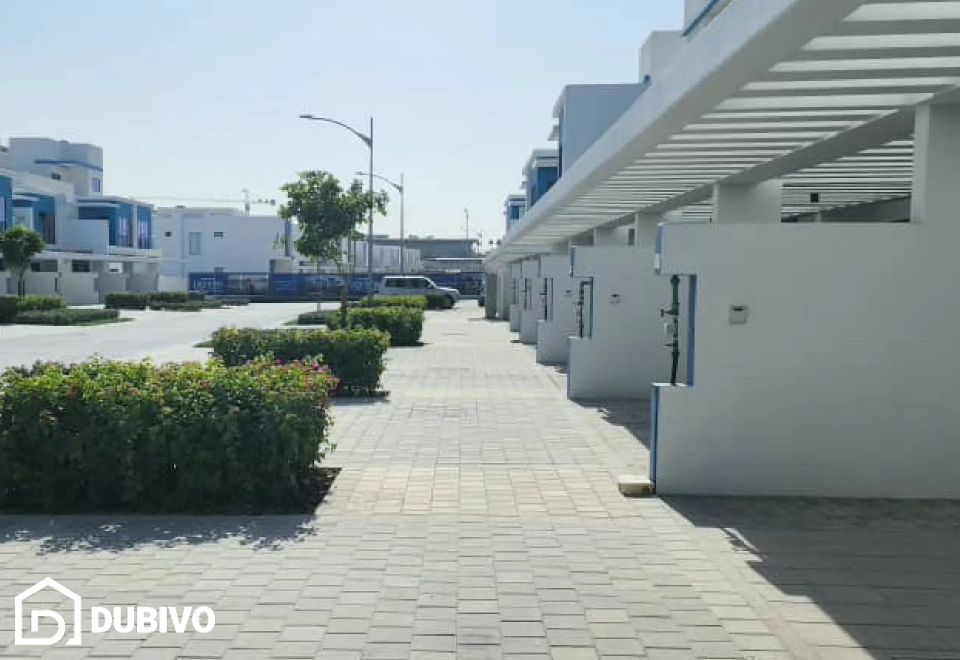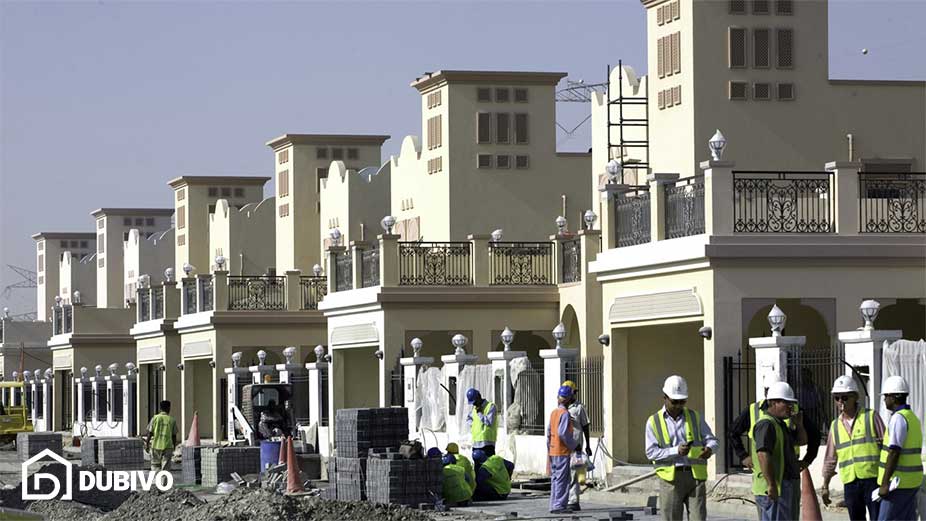Understanding the Laws for Buying Property in Dubai
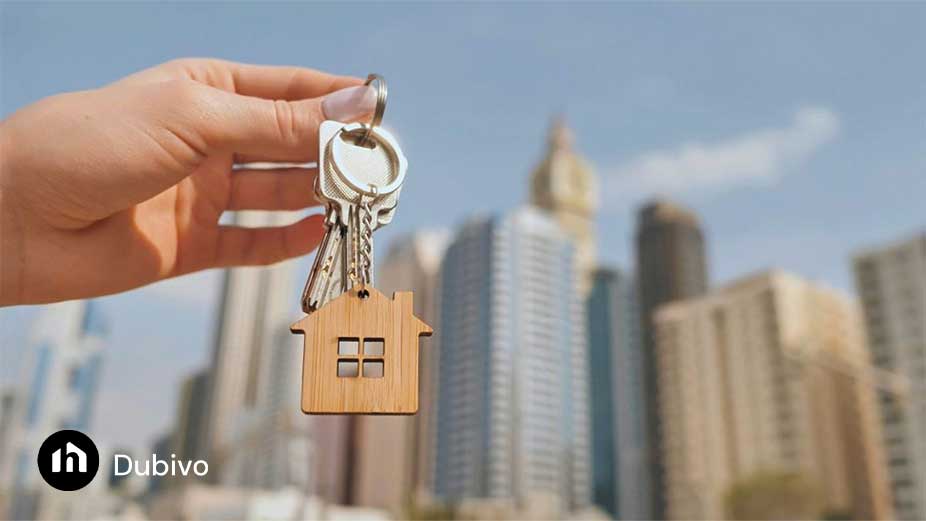
According to the laws for buying property in Dubai, foreign citizens are only allowed to purchase property in designated areas (Freehold). The buyer must have a valid passport. Payment for the property is usually made through a bank account. Additionally, property transfer tax or duties must be paid to the registration department for the title deed transfer to be legally processed. Obtaining a renewable residency permit by purchasing property is possible if the minimum value requirement is met. The contract must be concluded by official real estate offices. Buying property in Dubai with Dubaivvo helps you have a worry-free and secure experience.
A General Overview of Property Purchase Laws in Dubai
Understanding the laws for buying property in Dubai provides exceptional opportunities for international investors. Options like a penthouse in Dubai are among the most attractive choices for those interested in luxury living and real estate investment, thanks to the transparent and structured laws of the UAE.
- Buying property in Dubai is permissible for foreign nationals, and there are no restrictions on nationality.
- Specific areas, known as freehold zones, are designated for property purchase by foreigners.
- In these zones, ownership is completely transferred to the buyer.
- The legal age for buying property in Dubai is 21.
- The purchase contract must be officially registered at Dubai’s notary public offices.
- The buyer is responsible for paying the relevant fees and taxes.
- A valid passport is mandatory for completing the legal procedures.
- The applicant must pay a down payment for the property purchase.
- The final title deed is handed over to the buyer after all obligations are fulfilled.
- Obtaining a residence permit through property purchase in Dubai is possible but has special conditions.
- The purchased property can be transferred or sold to other individuals.
- All transactions must be registered by the Dubai Land Department.
- Owners are required to comply with urban planning laws and property usage regulations.
- Purchase and pre-purchase agreements are under the legal supervision of the Dubai government.
- Consulting with experts and official lawyers is recommended to ensure the legal process is followed.
Types of Property Ownership in Dubai
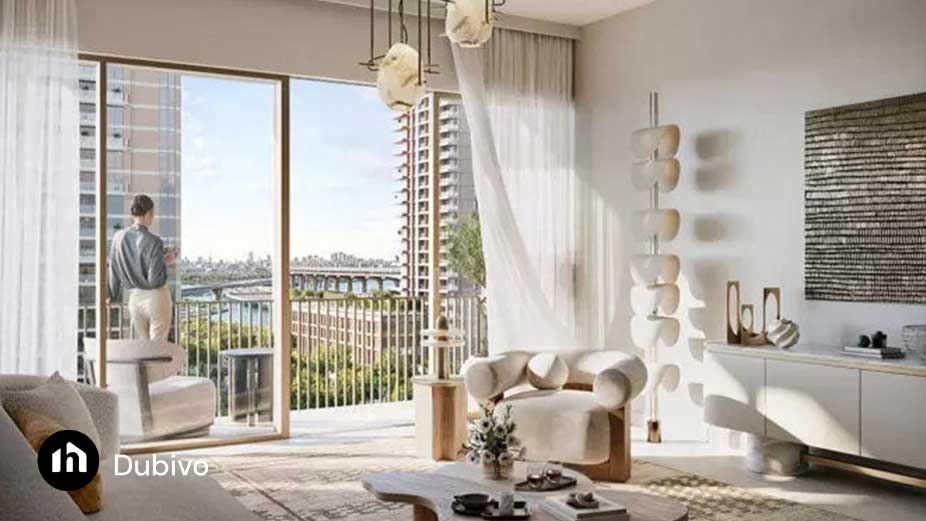
Dubai, as one of the popular destinations for real estate investment, offers various types of property ownership for domestic and foreign applicants. Understanding them is very important. Paying attention to the laws for buying property in Dubai is also crucial. One of the popular options for investment is buying a villa in Dubai, which, given the different ownership models, can provide greater security and confidence for investors.
1. Freehold Ownership
The first type of ownership is Freehold. Freehold ownership in Dubai allows foreign buyers to obtain full and permanent ownership of the property. This type of ownership guarantees complete freedom in buying, selling, renting, and transferring the property and is considered the best option for long-term investment and residence in Dubai’s thriving real estate market. If you intend to buy an apartment in Dubai, choosing a Freehold property can be one of the best options for investment and residence.
2. Leasehold Ownership
According to the laws for buying property in Dubai, Leasehold ownership allows buyers to lease a property for a specified period (usually 99 years) without owning the land itself. After the period ends, the property ownership reverts to the landowner. This ownership model provides a suitable opportunity for many foreign buyers to invest and live in Dubai. However, when buying or leasing a townhouse in Dubai with Leasehold ownership, pay special attention to the contract duration and tenant rights.
3. Commonhold Ownership
Commonhold ownership is one of the popular methods for buying property in Dubai, allowing buyers to have independent ownership of their units along with a share of the common parts of the building. This type of ownership ensures legal transparency, freedom of transfer, and an equal share in maintenance costs, making it very suitable for investors and buyers. Therefore, in Dubai’s commonhold system, buyers can purchase various units with joint ownership rights.
Freehold Areas for Property Purchase by Foreign Nationals

Dubai has become a top destination for real estate investment due to its rapid growth and economic opportunities. Therefore, understanding the laws for buying property in Dubai is particularly important for those looking to buy in freehold areas for expatriates.
- Dubai Marina is one of the most popular freehold areas for property purchase by foreign nationals and offers a variety of amenities.
- The artificial island of Palm Jumeirah is known for its luxury villas and apartments, offering residents a unique beach view.
- Jumeirah Lake Towers (JLT) provides easy access to business and shopping centers and is popular among investors due to its reasonable prices.
- Downtown Dubai, as the city’s economic and tourist hub, offers easy access to shopping malls, corporate headquarters, and various entertainment options.
- Jumeirah Beach Residence (JBR) is known as a coastal area with a modern lifestyle and boasts many entertainment and leisure centers.
- The villa community of Emirates Hills, with its green and peaceful environment, creates a suitable living space for families.
- Business Bay, with its numerous office and commercial facilities, offers good opportunities for property purchase and investment in Dubai.
- City Walk offers a mix of urban living, retail, and residential properties with easy access to the city’s central areas.
- Downtown Jebel Ali also offers new and diverse projects for property purchase, promising a bright future for investors.
Legal Steps for Buying Property in Dubai
Buying property in Dubai involves specific legal steps. Being aware of them can help buyers prevent potential problems and risks.
- First, you must check the necessary permits for property purchase by foreign nationals.
- Then, verify the legal ownership of the property and ensure there are no debts or mortgages by checking official documents.
- The next step is to draft and sign the purchase agreement between the buyer and the seller; this contract must be certified by official registration offices.
- Paying the deposit, government fees, and transferring the title deed to the buyer’s name are other key stages.
- Finally, receiving the official title deed from the Dubai Land Department establishes your ownership.
- Working with a specialized lawyer throughout this process is also recommended.
Required Documents for Buying Property in Dubai
According to the laws for buying property in Dubai, the first and most important document is a valid passport with sufficient validity, which confirms the buyer’s identity. Non-residents must also provide a valid UAE visa. Additionally, providing financial documents such as a bank balance certificate or a bank statement printout is necessary to prove the ability to purchase. Submitting the initial purchase agreement, completed forms related to real estate transactions, confirmation of deposit payment, and documents like a contact number and current residential address are also required. Ensuring these documents are accurate and complete will facilitate and expedite real estate transactions.
Costs and Taxes Related to Buying Property in Dubai
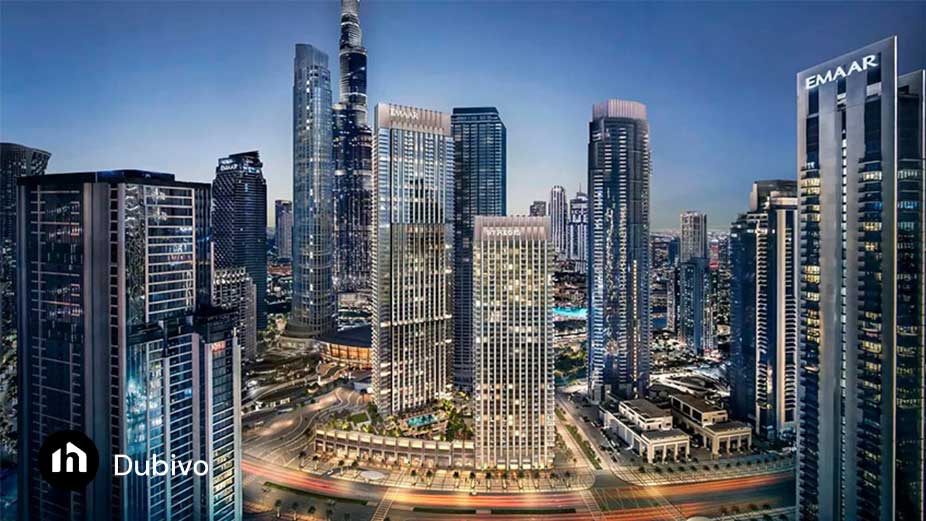
Buying property in Dubai is an excellent opportunity for investment and living in a modern city, but awareness of all related costs and taxes is also of particular importance. Applicants for property purchase in Dubai should know that in addition to the property price, there are costs such as a Transfer Fee, Title Deed Registration Fee, Community Service Fees, real estate agent commission, and Value Added Tax (VAT). All these costs must be reviewed and calculated before proceeding with the purchase to prevent potential problems and unforeseen expenses in later stages.
How to Transfer the Title Deed in Dubai
The process of transferring the title deed in Dubai is one of the important stages when buying or selling a property and must be done according to precise regulations. Based on the laws for buying property in Dubai, the seller and buyer must first sign the property purchase agreement. Then, by visiting the Dubai Land Department, necessary documents such as passports, identification cards, and the old title deed are submitted. After verifying the authenticity of the documents, the legal fees related to the transfer are paid. In the next step, a new title deed is issued in the buyer’s name. Adhering strictly to these steps ensures a legal and smooth transfer of the title deed in Dubai.
Legal Restrictions and Obstacles for Foreign Property Buyers

In Dubai, property purchase by foreign nationals faces some legal restrictions and obstacles. Full awareness of them is essential for conducting secure and legal transactions.
- The first important point is that foreign buyers are only allowed to purchase property in specific areas known as Freehold zones, and ownership in other parts of the city is not possible for non-Emiratis.
- In addition, detailed identity and financial documents are required from the buyer, including a valid passport, a certificate of no criminal record, proof of financial solvency, and disclosure of legal sources of capital.
- In some cases, obtaining necessary permits, such as approval from the Dubai Land Department (DLD), is mandatory.
- Another obstacle foreign buyers face is the laws regarding inheritance or property transfer; this means that inheritance conditions for foreign ownership are more restrictive than for UAE nationals, and sometimes the transfer of ownership in case of death is subject to special regulations or the approval of Emirati authorities.
- There are also limitations on obtaining bank loans, and generally, only some banks offer facilities to foreign nationals under stricter conditions.
- Ancillary costs such as transfer tax, deed registration fees, and legal fees are relatively high and must be carefully reviewed by buyers before the transaction.
Key Points in a Property Purchase Contract in Dubai

Buying property in Dubai coincides with gaining unique opportunities in the heart of one of the world’s most dynamic cities; however, success in this path requires attention to the key points of the contract and the laws for buying property in Dubai. Therefore, awareness of legal details and procedures can prevent potential problems and damages.
- Verify Title Deed Validity: Ensure the seller has the official and legal title deed to the property and that there are no debts or mortgages on it.
- Determine Price and Payment Terms: All details regarding the total transaction amount, payment method, down payment, and installments must be clearly stated in the contract.
- Property Handover Date: The exact time of property handover and the conditions of delivery (ready to move in or under construction) must be specified.
- Seller’s Warranties and Obligations: The seller is obliged to guarantee that the property is transferred without legal or technical issues and has carried out any necessary repairs.
- Contract Termination Clauses: The situations and manner of contract termination by either party must be clearly stipulated in the contract.
- Ancillary Transaction Costs: Clarifying the responsibility of the buyer and seller in paying for title transfer fees, taxes, commissions, and other expenses is also important.
- Guarantee of Ownership Transfer: Ensuring the correct registration of the ownership transfer at the Dubai Land Department and receiving the new title deed in the buyer’s name is mandatory.
- Property Usage Conditions: The property’s use, restrictions, or prohibitions on its use must be explicitly stated.
Benefits of Buying Property for Obtaining Dubai Residency
Buying property in Dubai is one of the best ways to obtain residency in this dynamic and modern city. By purchasing a property of a value determined by the Dubai government, you can receive a short-term or even a multi-year residence permit and benefit from the opportunity to renew it. One of the most important advantages of this method is the lack of need for an employer or commercial investment. Also, you and your family members will benefit from Dubai’s educational, medical, and welfare facilities. The possibility of opening a bank account, having free movement in the city, and benefiting from the growth of Dubai’s real estate market are other advantages of buying property and obtaining residency in this city.
What is the minimum property value to obtain Dubai residency?
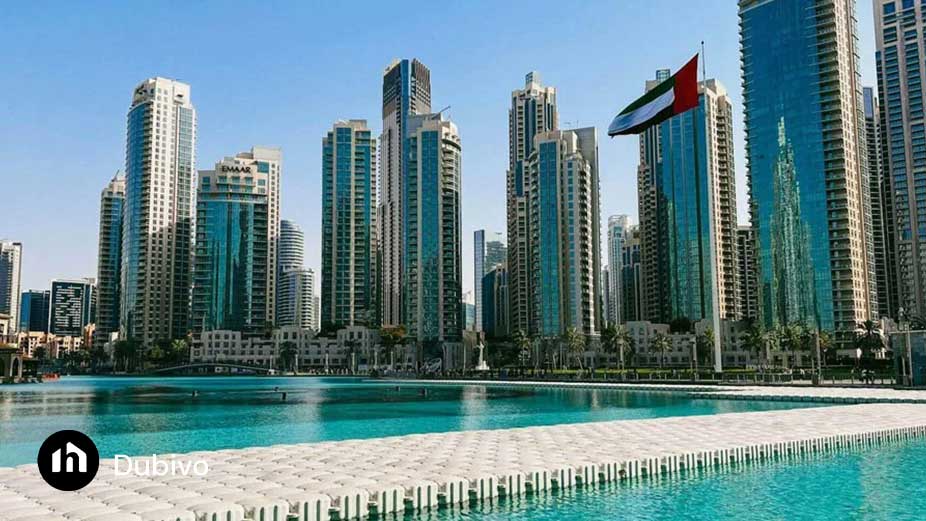
To obtain Dubai residency by purchasing a property, the minimum value of the property must be AED 2 million. This residency is related to the Golden Visa, which is issued for 10 years. To obtain a 2-year Dubai residency, the minimum property value must be AED 750,000. For a 5-year Dubai residency, the minimum property value must be AED 1 million.
- The property must be fully purchased, either in cash or through a loan granted by UAE banks. If the loan amount is not paid off, the owner’s equity in the property must be at least AED 2 million.
- The property must be residential and habitable.
- The property can be one or more separate units, provided their total value reaches AED 2 million.
- According to the laws for buying property in Dubai, the applicant can include family members (spouse and children) under the visa.
- The property must be purchased in designated Freehold Areas to allow for full and legal ownership.
- Required documents include the official Title Deed, a valid passport, a personal photo, and a confirmation letter from the Dubai Land Department.
- During the review process, the immigration department may need to visit the property or request additional documents.
Laws for Renting Out Property After Purchase in Dubai
After purchasing a property in Dubai, the owner is allowed to rent it out. To rent out the property, it is mandatory to register the lease agreement in the EJARI system, which officially guarantees the rights and obligations of both parties. The lease term is usually one year, and rent is paid by cheque or bank transfer. Property maintenance costs are typically the owner’s responsibility. It is also common to receive a security deposit from the tenant. Eviction is only possible according to the conditions stated in the law and after an official notice. Compliance with municipal and rental laws is also mandatory.
Final Words
According to the laws for buying property in Dubai, foreigners can own property in Dubai’s freehold zones and receive an official title deed. Individuals must be at least 21 years old and provide valid identification documents. Payment of costs includes the property value, transfer tax, and agency commission. All transactions must be registered with the Dubai Land Department to guarantee legal ownership. It is possible to obtain residency through property purchase, but buying property does not mean receiving citizenship. The law protects the owner against fraud and legal disputes, and sellers must provide a valid title deed.
Frequently Asked Questions
Can people under 21 buy property independently in Dubai?
No, individuals under 21 are not allowed to sign a property purchase contract in their own name.
Is permanent residency automatically issued after buying property in specific areas of Dubai?
No, merely buying property, even in special zones, does not lead to the automatic issuance of permanent residency and has specific conditions.

The Dubivo content team consists of experienced consultants and Dubai real estate market analysts. With years of field experience and access to the latest data, we simplify the complexities of the Dubai property market for you. Our mission is to provide unbiased, accurate, and practical content to help you make the smartest decision for investing or living in Dubai.

![LLC Company Registration in Dubai [Conditions, Cost, Rules, and Key Points 2025] 13 LLC Company Registration in Dubai](https://dubivo.com/wp-content/uploads/2026/01/LLC-Company-Registration-in-Dubai-592x444.jpg)






